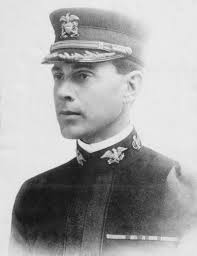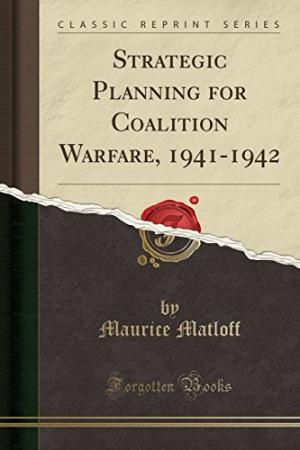Welcome to our seventh edition of Thursday Tidings! Please find our previous editions here.
In this week’s special edition, we are coming to you live from the biennial McMullen Symposium at the United States Naval Academy.

The McMullen Symposium, which has been held since 1973, is the premier gathering of professional Naval Historians from around the world. This year, over 35 current or former members of the Naval Historical Foundation are participating in this year’s McMullen Symposium, either as panel members or discussion chairs. We are thrilled that so many of our valued members are giving their time to share knowledge on Naval history.
Two of our very own Board Members will also be participating in one of the main events of the symposium, the McMullen Sea Power Discussion on Thursday evening. VADM Frank Pandolfe, USN (Ret.), Ph.D., and Dr. David Rosenberg from the Institute of Defense Analysis will be discussing “CNO Leadership: King, Burke, Zumwalt, and their Legacies.” Recall our second Thursday Tidings, when we highlighted Admiral Ernest J. King’s reflections on the technological improvement caused by World War II.
Admiral Pandolfe and Dr. Rosenberg will also be joined by Naval Historical Foundation members Dr. Edward Marolda (U.S. Naval Institute) and Admiral Jonathan Greenert, USN (Ret) for this panel discussion. We are confident that it will be an enlightening and beneficial dialogue.
The Naval Historical Foundation is also hosting our annual Dudley Knox Award Dinner on Friday night following the symposium. This year, we are awarding the Commodore Dudley Knox Medal to Mr. Tryone G. Martin, Mr. Norman Polmar, and Mr. David Curtis Skaggs.
We send a full congratulations to these three gentlemen for their dedication to the study and preservation of Naval History, and we are looking forward to officially recognizing them at our Dinner tomorrow evening.
“‘Thank God for the United States Navy!’: Combined Arms and Inter-Service Actions”

Of the many other interesting discussions scheduled for the McMullen Symposium will host another one of our members – Mr. Nathan D. Wells (Quincy College) will be discussing the role of inter-service cooperation in a talk entitled “‘Thank God for the United States Navy!’: Combined Arms and Inter-Service Actions.” The role of the U.S. Navy in combined arms action is, of course, a vitally important discussion even today.
When Inter-Service (naval, army, and air forces) action is made even more complex in the context of coalition warfare (with multiple nations participating), it becomes increasingly difficult for commanders to develop a coherent and unified strategy. This aspect of the war was so important that one of the volumes within the Pentagon’s offical history of World War II was Maurice Matloff’s Strategic Planning for Coalition Warfare, 1943-1944.
Matloff’s work, often cited as a masterpiece of both military history and strategy, contains a section on the confluence of inter-nation and inter-service warfare in the Pacific theater of World War II. In it, he wrote that the:
[P]roblems of operational strategy and policy remained to be settled—problems inextricably mixed up with the complex and long-lingering questions of command in the Pacific. Army-Navy disagreement on the question of over-all command in the Pacific had proved to be a sore spot that eluded treatment. Since neither side was willing to accept the remedies offered by the other, compromise solutions, which satisfied no one completely, were usually adopted, resulting in makeshift operation-to-operation arrangements that had to be re-examined constantly as conditions changed (pg. 88-89).
Matloff’s work explored the intersection between U.S. Navy and Army interests, over and against the interests of the specific services of both the British and Soviet Union. With so many moving pieces, it is understandable that planning and joint-cooperation proved as difficult as it did. Nonetheless, out of World War II came more formalized inter-service and inter-coalition strategies from the United States Department of Defense, strategies still in use today.
Matloff’s work contains a large amount of interesting and overlooked history, and you may find the full published edition online through the U.S. Army. You may also find Matloff’s earlier work on strategic planning focusing on 1941 and 1942, also for free through the U.S. Army.
Click the links below to find these free online classics of military history.
history.army.mil/html/books/001/1-3/CMH_Pub_1-3.pdf
history.army.mil/html/books/001/1-4/CMH_Pub_1-4.pdf
Next week on Thursday Tidings, in honor of National Hispanic Heritage month (September 15 – October 15), we will be reflecting on the vital legacy of Hispanic-Americans in the United States Navy.

